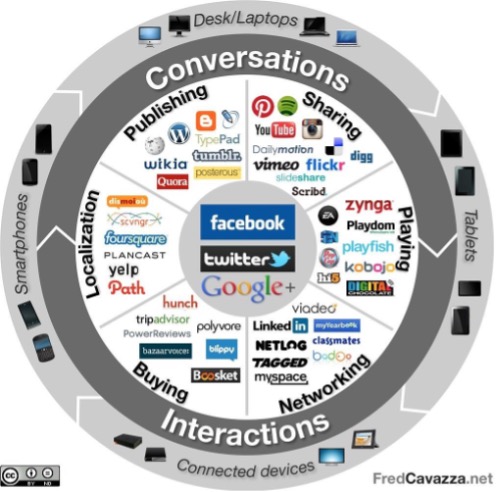AI in Publishing
3AI June 21, 2023

Featured Article:
Author: Deependra Singh, VP & Head Data Science and Analytics, Network 18
In recent years, the term “Artificial Intelligence” has been making headlines in almost every industry. From healthcare to finance, AI is transforming the way we work and live. But what about the media landscape? Could AI be a game-changer in this field too? In this blog post, we will explore how AI is revolutionizing the media industry and how it is changing the way content is created, consumed, and distributed. Get ready to discover a whole new world of possibilities with AI!

Introduction: The Game-Changer in Media Landscape
Game-Changer is an understatement when it comes to the impact of Artificial Intelligence (AI) on the media landscape. From content creation and curation to advertising strategies, AI is transforming traditional models across all dimensions of media. Today’s news consumer
demand personalized experiences, real-time updates and
engaging visual multimedia elements that are more tailored and relevant than ever before. With AI-powered algorithms analyzing audience behaviour patterns, news organizations are now able to deliver highly- targeted content that speaks directly to the interests of their visitors.
While this presents massive opportunities for publishers seeking better engagement rates and revenue streams, these advancements also come with ethical considerations given the increasing role that technology plays in our daily lives. As we move forward into a new era where machines continually learn from our everyday interactions online; understanding how best to manage this rapid evolution will be critical for those who want success in tomorrow’s media industry.

Understanding AI and Its Impact on Media
As technology evolves, Artificial Intelligence (AI) has emerged as a game- changer in the media industry. AI refers to the simulation of human intelligence processes through machines and algorithms that are capable of learning, reasoning and problem-solving tasks. Its impact on media is
largely driven by data analysis capabilities which enable personalized content distribution, targeted advertising and automated content creation.
One important aspect of AI is its ability to analyze large amounts of data quickly and accurately. This enables media companies to identify patterns in consumer behavior and tailor their content accordingly. For instance, news outlets can use AI-powered tools to curate news stories that align with readers’ interests based on their browsing history or social media activity.
Additionally, AI technologies are increasingly being used for automated journalism, where natural language generation software creates articles based on structured data such as reports or financial statements. This not only saves time but also allows journalists to focus more on investigative work.
In summary, it’s clear that understanding the potential impact of AI is crucial for any organization looking towards building a successful future in the ever-changing landscape of digital media.
How AI is Changing the Way We Consume News and Information
AI is changing the way we consume news and information by personalizing our online experience. With AI-powered algorithms, media companies can now recommend articles, videos or social media posts tailored to our preferences, based on our browsing history and behavior. AI also helps us access relevant content faster by summarizing lengthy articles into key points or creating bite-sized news updates that can be consumed in a matter of minutes.
The rise of chatbots and virtual assistants also enables a more conversational approach to consuming news. Users can engage with these bots via messaging apps or voice commands, receiving personalized news updates without having to scroll through multiple sources manually.
However, there are concerns about the reliability and bias of AI-generated content. As algorithms learn from past behaviors, they risk perpetuating
biases towards certain individuals or groups. It is crucial for media companies to prioritize transparency and accountability as they integrate AI into their operations.

The Role of AI in Content Creation and Curation
Content Creation and Curation are two areas where AI is making a significant impact. With the help of Natural Language Processing (NLP) and Machine Learning (ML), AI can now generate articles, reports, and even entire books. The Washington Post’s Heliograf, for instance, is an AI- powered tool that can write news articles in real-time. Similarly, AI algorithms can analyze vast amounts of data to curate personalized content for individual users. Netflix’s recommendation engine is a prime example of this. By analyzing users’ viewing history and preferences, it suggests movies and TV shows that they are likely to enjoy. As AI continues to evolve, we can expect more sophisticated content creation and curation tools that will enable media companies to produce high-quality content at scale while delivering personalized experiences to their audiences.

How AI is Transforming Advertising and Marketing Strategies
The impact of AI on advertising and marketing strategies cannot be overstated. With the ability to analyze vast amounts of data, AI is transforming the way companies target and engage with their audiences. AI-powered tools such as chatbots and virtual assistants are becoming increasingly popular in customer service, providing personalized experiences and streamlining communication. In addition, AI is enabling more effective ad targeting, allowing advertisers to reach the right audience at the right time with the right message. The use of machine learning algorithms also enables marketers to optimize their campaigns in real-time, making adjustments based on user behavior and engagement. As AI continues to evolve, it will undoubtedly play an even greater role in shaping the future of advertising and marketing in the media industry.
The Future of Journalism with AI: Opportunities and Challenges
The future of journalism is inevitably linked to AI. With the ability to gather data, analyze information, and generate accurate reports at a lightning speed rate, AI has already proven its potential in transforming the media industry. However, it also brings some concerns about the nature of news accuracy and ethics.
There are concerns that automated content creation algorithms will lead to biased reporting or make journalistic errors more common. Moreover, as machines begin writing human-like language without control, there may be cases where fake news spreads faster than we can verify it.
However, with careful planning and regulation guiding development in this field, AI could lead to significant improvements in journalism. By enabling journalists with deeper insights into complex stories through real-time
fact-checking tools or enhanced research capabilities for investigative pieces they can uncover hidden truths otherwise missed by traditional methods.
Ultimately though Journalists must learn when their storytelling needs automation’s help and utilize those opportunities rather than being replaced by them wholly.

The Ethical Implications of AI in Media Industry
The Power and Responsibility of AI in Media Industry Ethics
AI has the potential to revolutionize the media industry, but with great power comes great responsibility. As AI technology becomes more advanced, it raises important ethical questions about its use in media. One key concern is bias – AI algorithms can inadvertently perpetuate existing biases present in society or be programmed with biases by their human creators. Another issue is accountability – who should be held responsible for mistakes made by AI systems? It’s crucial that individuals and organizations using AI in media take steps to address these concerns and prioritize transparency and fairness in all aspects of their operations involving AI.
Balancing Objectivity with Personalization: The Challenge for AI- powered Content Creation
As AI becomes more prevalent in content creation, there is a growing concern about how to balance objectivity with personalization. While AI can help tailor content to individual preferences, it can also create filter bubbles that limit exposure to diverse perspectives. Additionally, there is a risk of bias in the algorithms used by AI systems. It is important for media companies to establish ethical guidelines for the use of AI in content creation and ensure transparency in how algorithms are developed and used. Ultimately, the challenge for AI-powered content creation is to provide personalized experiences while maintaining journalistic integrity and promoting diversity of thought.
When Machines Learn to Discriminate: Addressing Bias and Inequality in AI Applications
As AI becomes more prevalent in the media industry, it is important to address the potential for bias and discrimination in its applications. AI algorithms are only as unbiased as the data they are trained on, and if that data contains inherent biases, the resulting decisions made by the AI can perpetuate those biases. This can lead to further inequality
and discrimination in areas such as hiring practices or news coverage. It
is crucial for media companies to actively monitor and address any biases in their AI systems to ensure fair and equal treatment for all individuals.
Striking a Balance between Efficiency and Humanity in Newsroom Operations
As AI continues to gain ground in the media industry, it is important to strike a balance between efficiency and humanity in newsroom operations. One ethical concern that arises with the use of AI is the potential for bias in automated content creation and curation. Additionally, there are concerns about privacy violations when using AI-powered tools to analyze user data for targeted advertising. It’s crucial for media companies to prioritize transparency and accountability when implementing AI technologies. This means acknowledging their limitations, regularly reviewing algorithms for biases, and ensuring that human oversight remains integral throughout production processes. By doing so, we can ensure that technology serves as an aid rather than a substitute for journalistic integrity and empathetic reporting practices.

Case Studies: Real-Life Examples of AI Revolutionizing Media Landscape
AI Algorithms Boost Newsroom Efficiency: Case Studies from Major Media Outlets
Major media outlets like The New York Times, Associated Press and Reuters are already using AI algorithms to boost their newsroom efficiency. For instance, the AP uses AI-powered software to write quarterly earnings reports for thousands of publicly traded companies. Meanwhile, The New York Times uses an AI tool called Editor that helps suggest article topics and potential sources for writers. Similarly, Reuters employs Lynx Insight which is an AI system that analyzes data in real-time helping journalists find newsworthy stories quickly. These examples demonstrate how AI is revolutionizing the way newsrooms operate by enabling them to automate routine tasks and freeing up time for more high-value work such as investigative journalism or deep analysis.
Personalization in the Age of AI: How Netflix and Spotify Are Changing the Game
Netflix and Spotify are two prime examples of how AI is transforming the media landscape through personalization. By analyzing user data, these platforms are able to recommend content that is tailored to individual preferences and behaviors. This not only enhances the user experience but also increases engagement and retention rates. Netflix’s recommendation algorithm, for instance, uses machine learning to
suggest movies and TV shows based on viewing history, ratings, and even time of day. Similarly, Spotify’s Discover Weekly playlist uses AI to curate a personalized mix of songs based on listening habits. As AI continues to evolve, we can expect more media companies to adopt this personalized approach in order to stay competitive in the market.
The Rise of Deepfakes: Investigating AI’s Impact on Journalism Ethics
Deepfakes, a type of synthetic media created using AI, have raised concerns about the ethics of journalism. With the ability to manipulate videos and images, deepfakes can be used to spread false information and damage reputations. In 2019, a deepfake video of Nancy Pelosi went viral on social media, raising questions about the authenticity of political content. While some argue that deepfakes can be used for entertainment
or satire, others worry about their potential to deceive the public. As AI continues to advance, it is crucial for journalists and media organizations to consider the ethical implications of using deepfakes in their reporting.
Targeted Advertising Gets a Makeover with AI-Driven Analytics: Examples from Facebook and Google
Facebook and Google are just two examples of how AI is transforming the way advertisers reach their target audiences. With highly
sophisticated algorithms, they can analyze user behavior to deliver hyper- targeted ads that are more likely to convert into sales. Facebook’s Dynamic Ads for Broad Audiences uses machine learning to match products with users who are most likely to buy them, while Google’s Smart Bidding uses real-time data to set bids for each auction automatically. The result? A more efficient advertising process that saves marketers time and money while delivering personalized experiences for consumers. AI-driven analytics make targeted advertising smarter than ever before, changing the game in digital marketing strategies.
How to Prepare for the AI-Driven Future of Media Industry
Preparing for the AI-Driven Future of Media Industry
As AI continues to revolutionize the media landscape, it’s important
for media professionals to adapt and prepare for the changes ahead. One key step is to embrace a data-driven approach in all aspects of media production, from content creation to distribution and marketing. This means leveraging AI-powered tools and analytics to gain insights into audience behavior and preferences, and using that information to inform decision-making.
Another important consideration is investing in AI talent and expertise. As AI becomes more integral to media operations, having skilled professionals who can develop and implement AI strategies will be crucial. This may involve hiring data scientists, machine learning engineers, and other
specialists who can help drive innovation and keep pace with technological advancements.
Finally, it’s important for media organizations to stay informed about the latest developments in AI. This means keeping up with industry news, attending conferences and events focused on AI in media, and networking with other professionals in the field. By staying ahead of the curve, media organizations can position themselves for success in an increasingly AI- driven world.
Conclusion: Embracing the Game-Changer for a Better Media Landscape
As the media industry continues to evolve, it’s clear that AI is a game- changer. While some may fear the impact of automation and machine learning, it’s important to embrace the opportunities that AI presents. By understanding how AI is transforming the media landscape, we can prepare for a future where technology plays an even greater role in our lives.
One key takeaway is that adaptability is crucial. As AI continues to develop and change, media professionals must be willing to learn and
adapt alongside it. This means staying up-to-date with the latest technologies and trends, as well as being open to new ways of thinking about content creation, curation, and distribution.
Ultimately, the future of media with AI is both exciting and challenging. By embracing this game-changer, we can create a better media landscape that serves audiences more effectively than ever before.
In conclusion, AI is undoubtedly a game-changer in the media landscape. From transforming the way we consume news and information to revolutionizing advertising and marketing strategies, AI is opening up new opportunities for the media industry. However, as with any technological advancement, there are also ethical implications that need to be addressed. It is important for media professionals to stay informed and prepared for the AI-driven future of the industry. By embracing this game- changer, we can create a better media landscape that is more efficient, effective, and engaging for audiences around the world.
Questions & Answers
Question: Who is using AI in media?
Answer: Major media companies like BBC, Reuters and AP are all using AI in their newsrooms.
Question: What impact will AI have on media jobs?
Answer: AI will change the nature of some jobs, but new roles will emerge.
Question: How is AI improving media content?
Answer: AI can help personalize content, improve accuracy and speed up production.
Question: Who benefits from AI in media?
Answer: Consumers benefit from more personalized and relevant content.
Question: What are the limitations of AI in media?
Answer: AI can’t replace human creativity and intuition.
Question: How can media companies address concerns about AI?
Answer: Companies can be transparent about their use of AI and involve employees in the process.
Generated By ArticleFiesta.com
Note there is no watermark for paid members of the AI content creation tool.
Title picture: freepik.com






